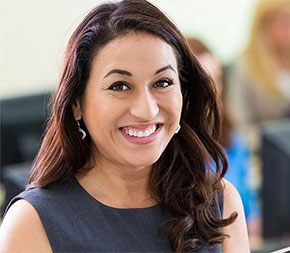Bachelor’s Degree in Education: Comprehensive Guide


About the Bachelor’s in Education
Degree Type:
Bachelor of Arts, Bachelor of Science
Location:
Online, Classroom, Hybrid
Duration:
3 – 5 Years
Total Credits:
120
Aid Eligible:
Yes, for accredited programs
Earning a bachelor’s degree is a must if you aspire to teach, but there are a couple options to think about as you solidify your decision. First of all, what and who do you want to teach? The majority of degree-holding early childhood education and elementary teachers graduate from a school of education with a bachelor’s degree in teaching. However, many secondary teachers major in their subject area and complete teaching requirements through special programs or by completing state teacher certification requirements concurrently with their bachelor’s degree.
A third option might be to earn your bachelor’s in education and then earn an endorsement in a specialized subject, such as special education, physical education, or a subject such as history or science.
Whatever you’re determined to teach, your first step will be to earn a bachelor’s degree in education. Here’s what to expect and look for from-and in-your education program.
Getting Admitted into Your Bachelor of Education Program
Many schools have a selective admission requirement into the Bachelor of Education program. The most common requirements include the following:
| Completion of core requirements or a transferable associate’s degree | A cumulative grade point average (GPA), usually 2.5 |
| A set number of hours of supervised teaching or work with the grade level you wish to teach | Completion of prerequisite classes in subjects such as English, U.S. History, Science, and Mathematics |
| Successfully have passed the ACT, SAT and state skills tests | Submission of a fully completed application to the College of Education program |
| Non- U.S. students must take the TOEFL, may need to write an essay, and get previous educational credentials evaluated, among meeting other national and state requirements |
Duration of Bachelor of Education Programs
Most bachelor’s degree programs take four years to complete, depending upon your personal circumstances, although there are exceptions. If you’re in a hurry to lead your own classroom, there are some less common fast-track programs such as an accelerated bachelor’s degree program.
These allow you to complete your education coursework in three years instead of four. Accelerated programs typically have you choose an education path and you will complete your general education and elective requirements more quickly through condensed learning. Accelerated programs are not for every student, however, as you will need to be motivated and focused to complete it successfully. If you need to work or tend to other obligations while you go to school, an accelerated program may not work for you.
Instead, you could consider an online bachelor’s program, which is another option to either shorten or lengthen your schooling. Online programs allow you to create your own schedule and complete assignments at your pace within the designated framework of the program.
What to Expect from Your Program
Your bachelor’s degree in education will provide you with a broad liberal arts education, as well as a firm foundation of teaching knowledge and expertise. During your undergraduate experience, you will take many of the same prerequisites and larger lecture classes that most students take during your first two years, then you will specialize into upper-level education classes by the end of your college career. Education program curricula stress both the content and pedagogy of teaching.
- Content: Master the skills and internalize the information you will be teaching your students.
- Pedagogy: Learn and practice the art of teaching, from its psychological underpinnings to practical considerations.
In general, expect your program to hold accreditation from either a regional accrediting agency, or a professional agency, such as the Council for the Accreditation of Educator Preparation (CAEP). Accreditation is essential no matter what type of program you choose, as it is a seal of excellence and verification that the program has been approved and vetted by educators and administrators. Without accreditation, your credits may not transfer and you may find yourself ineligible for federal financial aid.
You should also expect your program to provide access to student teaching opportunities, as some states have hard requirements for prospective teachers to complete. These are different than teacher practicums, which are required if you already hold certification to teach. Student teaching is a supervised prep program that gives you a set number of hours of teaching experience (usually the length of a quarter or semester, depending upon your school). You will need to complete student teaching to earn your certification or licensing in your state.
Your program will also have completion requirements, and you’ll need to take credit hours in different areas to earn your bachelor’s degree. Here’s an estimated overview:
| Total credits for completion: | 120 |
| General course requirements: | 40 – 45 |
| Education courses requirements: | 35 – 40 |
| Electives: | 40 |
Typical Curriculum in a Bachelor of Education Program
Depending upon your school, your bachelor’s in education program may have some variance in coursework from another, but for the most part, you will complete your liberal arts and general classes during your first two years and more specialized coursework in years three, four and possibly five. In your program you’ll learn the principles of education, education philosophy for teachers, learning theory and practice, and classroom management.
Typical coursework and credits may include courses such as these:
| Instructional strategies (Preschool – Grade 12) | 5 |
| Group behavior | 5 |
| Child and human development | 5 |
| Mathematics concepts | 5 |
| English language learning and literacy integration | 5 |
| Educational curriculum creation and modification | 5 |
| Student assessment and evaluation | 3 |
| Classroom management | 3 |
Specializations in a Bachelor of Education Program
Most Bachelor of Education programs prepare you for curriculum and instruction and administrative careers but as we discussed in the introduction, you can choose to focus on a specialized area of instruction. Some of the most common areas to choose from include the following specializations:
Elementary Education: You’ll begin focusing on elementary teaching programs in your junior year and complete approximately 45 – 50 credits in coursework designed to prepare you to teach elementary grades. Classes will include elementary school math, social studies and science; principles of elementary education; digital technologies; literacy; and teaching children with exceptionalities.
Special Education: Your bachelor’s program curriculum includes 45 – 60 credits of classes, including child assessment, educational psychology, behavior, communication, disabled student instruction, and curriculum development.
English Language Learners (ELL): You’ll complete 40 – 50 credits in courses such as linguistic theory; culture and diversity; second language development; English listening, speaking, reading and writing skills; and understanding and teaching English language, among others.
Reading: Your bachelor’s degree is the first step to becoming a reading specialist, and in your program, you’ll typically complete around 40 credits in classes such as literacy instruction, the writing process, literacy for culturally diverse learners, management and assessment, children’s and young adult literature study, and early literacy. You’ll also need to complete a capstone project.
Early Childhood Education: Your coursework will include 40 – 50 credits in early childhood growth and development; instructional strategies for early childhood educators; young child exceptionalities; assessment and evaluation in early childhood; methods of teaching in the arts and music; social studies and science; and community and family engagement.
Salary Information for Bachelor of Education Careers
The majority of bachelor’s in education holders work as teachers, and once they have earned their bachelor’s, move on to earn endorsements in specialty subjects, continue into educational leadership roles by earning a master’s degree in education, or meet the criteria for licensing in their state in order to teach. Looking at the specialties above, here are median annual salaries for teachers with a bachelor’s in education and who have earned their endorsement in those areas:
| Teaching Specialty | Median Annual Salary |
| Elementary Education Teacher | $63,680 |
| Special Education Teacher | $64,910 |
| English Language Teacher | $78,130 |
| Instructional Coordinator | $74,620 |
| Early Childhood Education Teacher | $37,130 |
Source: U.S. Bureau of Labor Statistics’ 2023 Occupational Employment Statistics
Careers and Job Outlook for Those with a Bachelor’s Degree in Education
Once you’ve earned your bachelor’s in education, you’ll be faced with the decision to choose where you want to work. While most graduates pursue teaching, curriculum and instruction, and educational leadership roles (with more education), there are other fields in which you can pursue a career. Here are some areas besides education you may not have thought of:
| Public sector careers | Recreation centers |
| Non-profit organizations | Health and human services |
| Counseling | Psychology |
| Sociology | Career services |
If you’re dedicated to teaching as a profession, however, you’ll be glad to note the U.S. Bureau of Labor Statistics predicts steady job growth for the field. The job growth rate through 2032 is expected to rest at 4–6%, which is right in line with the national average for all careers.
Take the Next Step
With the availability and flexibility of bachelor’s degree education programs, both online and traditional, there’s no reason to not earn the degree that will help you achieve your career goals. If you’re ready to take the first step into the education field by researching accredited bachelor’s degree programs, let us help you get there. All you need is one click and you’re on your way.



